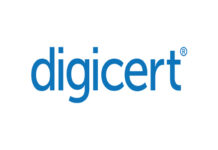How such medical Data Breaches can be prevented
A recent alarming revelation revealed the sensitive medical data of 81.5 million Indians on the dark web, revealing a significant breach of privacy. This story dives into the critical need for stronger data security procedures to prevent similar intrusions. It investigates techniques, encryption, and stronger rules to safeguard medical records and protect patients’ information in an increasingly digital healthcare landscape, emphasizing the importance of data security in the healthcare sector.
Tushar Dhawan, Partner, Plus91labs
“At plus91labs we comprehensively suggest to our clients to implement cybersecurity framework within CRM systems involves setting stringent user access controls, encryption, and continuous monitoring for any anomalous activities.
Moreover, investing in employee training to promote a culture of data security awareness is crucial. This includes educating staff about phishing attempts, malware, and the importance of strong passwords. Regular security audits and updates within the CRM ecosystem, such as two-factor authentication and regular patching, are vital.
For a resilient infrastructure, companies must deploy robust endpoint protection, firewalls, and intrusion detection systems. Implementing a response plan in case of a breach is equally critical, enabling swift containment and recovery.
We recommend all our customers to combine salesforce’s native security features with salesforce shield and best practices form a formidable defense against breaches. Regular assessments, updates, and proactive measures are key to maintaining data integrity in an ever-evolving threat landscape.”
Mr. Vipin Vindal, CEO, Quarks Technosoft
“Preventing medical data breaches is not just about technology; it’s a commitment to safeguarding the trust and well-being of patients. It requires robust cybersecurity measures, strict data access controls, and ongoing education for healthcare professionals. Above all, it demands an unwavering dedication to the ethical and secure handling of sensitive medical information, ensuring that patient privacy remains sacrosanct.”
Mr. Lalit Mehta, Co-Founder and CEO, Decimal Technologies
“As a result, information belonging to 81.5 million Indians were posted on the dark web, which underscores the importance of data breach avoidance. Identity theft, loss of cash and violation of private life may follow data leakage. These result from typical vulnerabilities like poor passwords, phishing or the existence of vulnerabilities in the program itself.
To prevent data breaches, adopt best practices: Employ strong, different passwords and activate multiple-factor authentication. Ensure you keep software up to date and secure all security loopholes. Train employees on cybersecurity awareness.
Protect sensitive data and enable secure communication. The use of firewalls and intrusion detection systems for network security. Organizations need to undertake regular data backup and have an existing disaster recovery plan to counteract the effects of breaches.
Follow regulations such as GDPR to avoid legal actions.
Summing up, it is important to take proactive measures in order to mitigate against security breaches. Be alert and urge others to remain vigilant. Ensure review, revision of good practices on a regular basis, and utilize appropriate tools to strengthen your security when using the Internet. The security of your data lies with you.”















